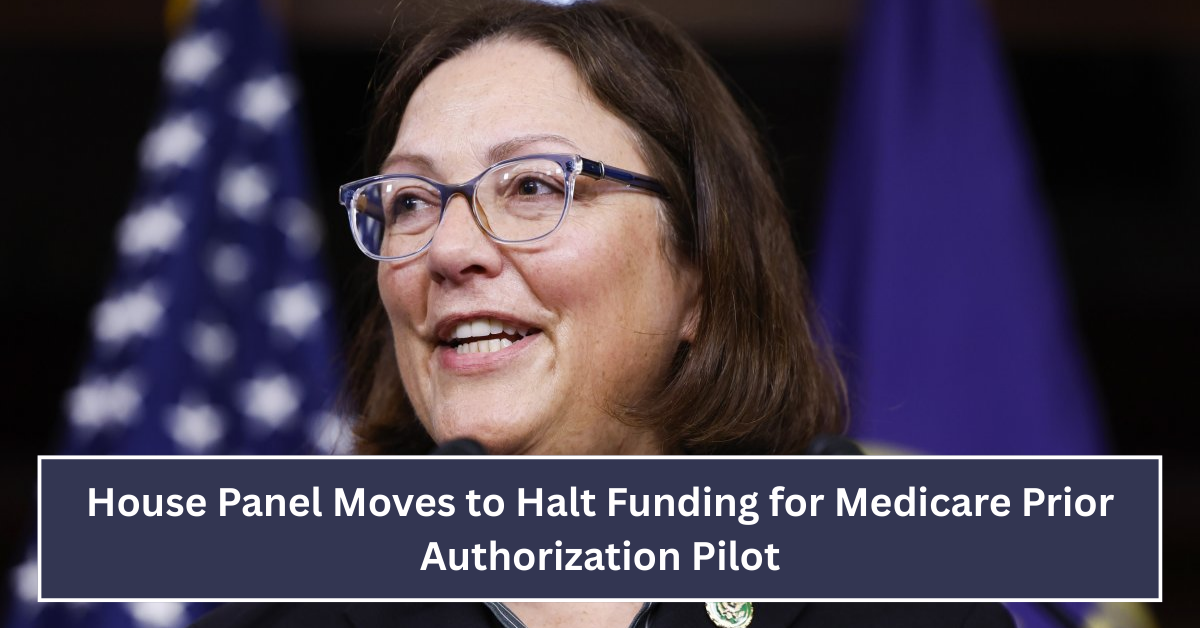The debate over prior authorization in Medicare has taken a critical turn as a key House panel advances an amendment aimed at blocking funding for a controversial pilot program within traditional Medicare. This move signals growing concern among lawmakers about the administrative burdens and potential delays in care caused by prior authorization requirements. Younger Medicare beneficiaries and health care providers alike are watching closely as this policy could reshape the way care approvals are managed.
Prior authorization, designed to control costs and ensure appropriate care, has been contested for its complex paperwork and sometimes lengthy wait times that affect timely treatment. The pilot program’s goal to test prior authorization procedures in traditional Medicare has drawn criticism for potentially adding red tape and impacting patient outcomes. Understanding what this amendment means and its broader implications is key for anyone invested in the future of healthcare delivery.
Understanding Prior Authorization and Its Role in Traditional Medicare
Prior authorization is a process where healthcare providers must obtain approval from Medicare before delivering certain services, medications, or procedures. This step is meant to confirm that the care is medically necessary and fits within coverage guidelines. Although prior authorization has long been part of Medicare Advantage plans, its introduction into traditional Medicare via pilot programs has sparked debate.
The goal of incorporating prior authorization in traditional Medicare is to reduce unnecessary spending and prevent fraud. However, critics argue that it can create significant delays in treatment, increase administrative workloads for providers, and potentially discourage patients from seeking care promptly. The complexity of these bureaucratic processes can be especially challenging for younger Medicare beneficiaries who may be managing chronic illnesses or disability-related care needs.
Details of the House Panel Amendment to Block Funding
Recently, a House appropriations subcommittee advanced an amendment designed to cut funding for the pilot program that seeks to implement prior authorization in the traditional Medicare program. This move effectively puts a pause on expanding prior authorization requirements until further evaluation can be conducted.
The amendment reflects a bipartisan concern over the impacts of prior authorization on healthcare efficiency and access. Lawmakers behind the amendment argue that the program has yet to demonstrate enough evidence of cost savings or improved care outcomes to justify its expansion. Instead, they emphasize the need to focus on streamlining administrative procedures and ensuring patients receive timely care without increased obstacles.
Impact of the Amendment on Medicare Beneficiaries and Healthcare Providers
For Medicare beneficiaries, especially younger recipients and those managing complex healthcare needs, this amendment offers some relief against potential delays in receiving necessary treatments. Patients often experience frustration when care is delayed due to lengthy approval processes, sometimes resulting in worse health outcomes.
Healthcare providers have also voiced concerns about prior authorization causing significant administrative strain. Physicians and care teams spend substantial time navigating paperwork and follow-ups, diverting focus from patient care. By blocking funding for the pilot, providers may avoid increased workloads tied to extensive prior authorization requirements in the short term.
Why Prior Authorization Sparks Controversy in Healthcare
Prior authorization is intended to improve healthcare quality and reduce wasteful spending by ensuring that treatments are appropriate. However, its implementation often leads to unintended consequences. Providers and patients frequently report challenges, including:
| Issue | Explanation |
|---|---|
| Delays in Care | Waiting for approval can postpone treatments, risking condition deterioration. |
| Administrative Burden | Completing forms and navigating approvals consumes provider time and resources. |
| Patient Frustration | Complex processes can deter patients from pursuing or adhering to treatments. |
| Questionable Savings | Some studies suggest cost savings are minimal compared to administrative costs. |
These concerns contribute significantly to the opposition against expanding prior authorization programs within traditional Medicare.
Analyzing Statistical Trends in Prior Authorization and Medicare Spending
Recent health policy analyses have highlighted mixed results related to prior authorization initiatives. While some data indicate modest reductions in unnecessary procedures, the overall financial impact remains uncertain. Meanwhile, administrative costs tend to rise, creating a potential net increase in system expenses.
Among Medicare providers, reports show that a substantial percentage spend several hours weekly managing prior authorization requests, reducing time available for direct patient care. Additionally, younger Medicare beneficiaries often rely on timely interventions for chronic conditions, which may be compromised by added approval steps.
The Broader Policy Context: Balancing Cost Control and Patient Access
This amendment comes at a time when Medicare faces ongoing challenges in balancing budget constraints with quality care delivery. Policymakers weigh the potential savings from prior authorization against risks of delayed or denied treatment. Younger beneficiaries, who typically enter Medicare due to disability, experience unique healthcare demands requiring flexibility and responsiveness.
As the debate evolves, the focus remains on crafting policies that maintain financial sustainability while minimizing negative effects on patient access and provider workflows. The outcome of this amendment may influence future congressional decisions related to Medicare program reforms.
Possible Future Scenarios for Prior Authorization in Traditional Medicare
With the amendment advancing, the future of prior authorization in traditional Medicare remains uncertain. Potential scenarios include:
- Complete reconsideration and redesign of the pilot program to better address stakeholder concerns.
- Implementation of streamlined prior authorization processes leveraging technology for efficiency.
- Increased emphasis on alternative cost control measures without adding administrative complexity.
- Further research and data collection to assess impact before wider rollout.
How these options are pursued will heavily influence the Medicare landscape in the coming years, affecting millions of beneficiaries and healthcare providers nationwide.
Conclusion: What Younger Medicare Beneficiaries Should Know
The House panel’s decision to advance an amendment blocking funding for prior authorization pilots in traditional Medicare marks a significant policy shift. For younger Medicare beneficiaries navigating complex health conditions, this could mean fewer hurdles in obtaining timely care. It also reflects ongoing tensions between controlling costs and maintaining patient-centered healthcare.
Staying informed about these developments empowers beneficiaries to advocate for policies that support access and reduce unnecessary administrative burdens. As Congress debates Medicare’s future, voices of patients and providers will remain crucial in shaping effective, fair healthcare systems.




